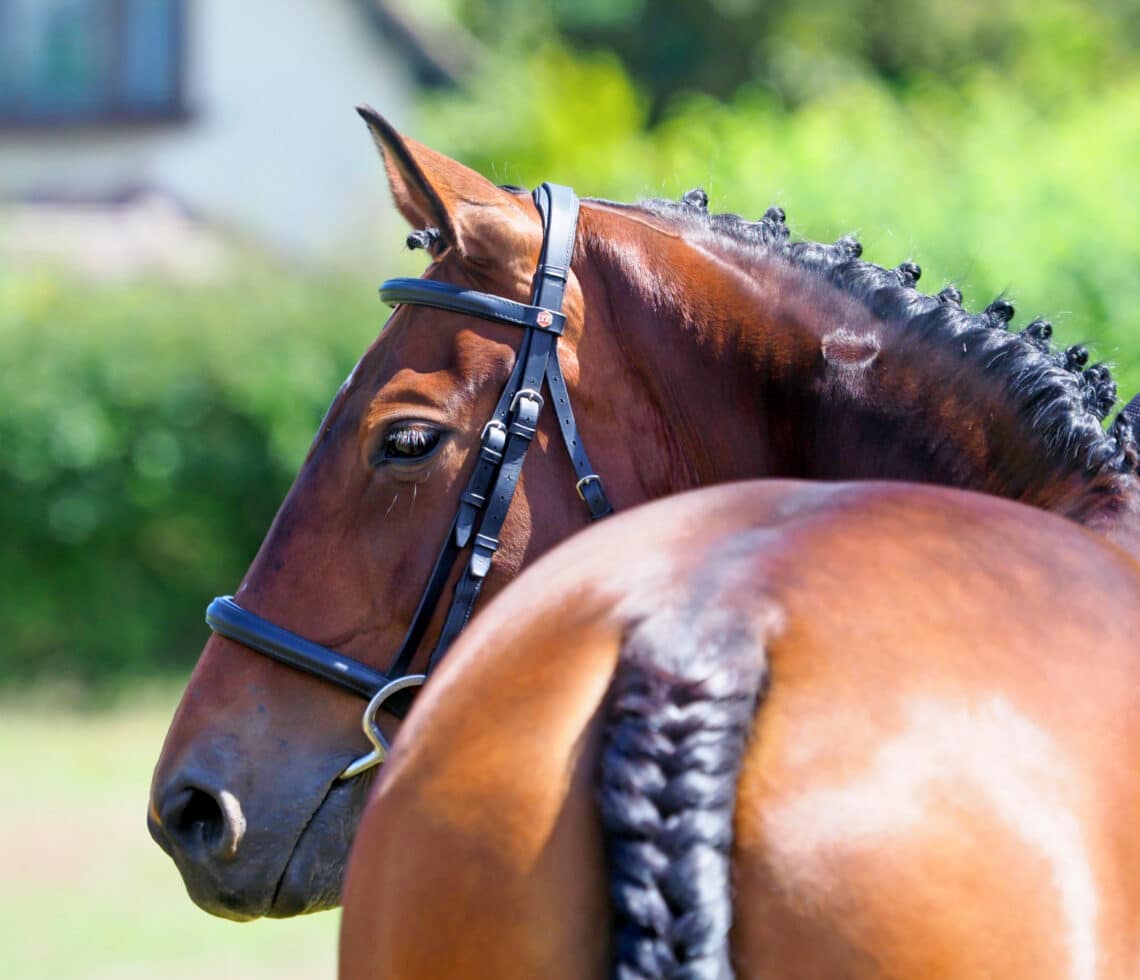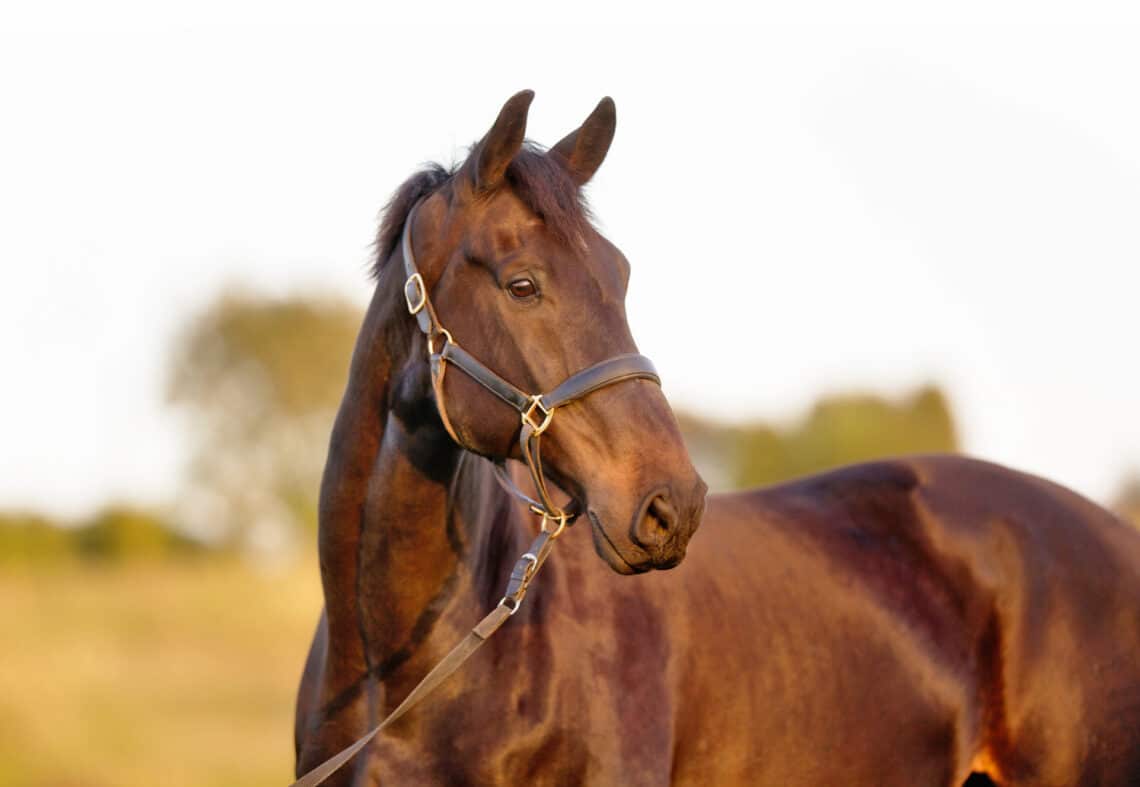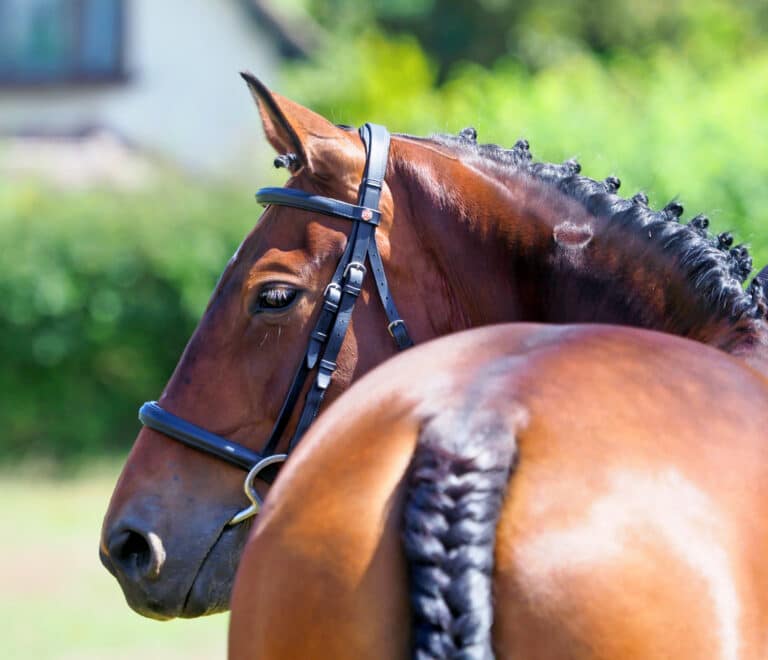
Feeding for show ring shine
Show season will be here before we know it, so now’s the time to start working on your horse’s show ring shine, and LARISSA BILSTON explains how.
Nutrition plays a pivotal role in the health and performance of show horses, so there’s no time like the present to revisit the key aspects of nutrition which contribute to the overall health, behaviour, and coat shine of show horses.
Understanding the basics
Show horses are athletes, and like all athletes they require specific nutrients to support their physical demands and maintain optimal health. The foundation of a healthy horse’s diet includes:
Forage (hay and pasture): High quality forage should form the basis of a show horse’s diet. It provides essential fibre for digestive health and supports natural grazing behaviour, which reduces stress and improves general well-being.
Concentrates (hard feeds): Depending on individual needs and workload, concentrates such as grains, pellets or super-fibres provide additional calories, protein, vitamins and minerals. These should be carefully balanced to avoid overfeeding and related behavioural issues.
Vitamins, minerals and oils: Essential for overall health, vitamins (like A, D, E, and B complex) and minerals are often supplemented to ensure adequate intake. The correct balance of calcium, phosphorous and magnesium is important for muscle contraction/relaxation and normal brain and nervous system function. Micromineral balance, especially of iron, copper and zinc, is of critical importance to produce intense coat colour and a natural shine. When copper and zinc levels are not balanced with the iron status of the forage, a horse’s coat can appear lighter than normal, faded or sun-bleached.
Fats and oils: Any type of oil in the diet creates shine, but a healthy diet for a horse must balance the polyunsaturated fatty acid ratios to contain more omega-3 fatty acids than omega-6.
Nutrition and general health
Maintaining the general health of show horses involves more than just meeting their caloric needs. Proper nutrition affects various aspects of their wellbeing:
Digestive Health: Fibre from forage supports a healthy digestive system, preventing issues like colic and gastric ulcers. Increase support for gut health by supplementing with prebiotics and probiotic live yeast during transport, competition, and times of stress.
Joint Health: Supplements like glucosamine and marine DHA omega-3 fatty acids can aid joint health, crucial for horses subjected to repetitive physical activity.
Immune Function: A balanced diet rich in antioxidants and with the correct ratios of omega-3 and 6 fatty acids strengthens the immune system, reducing the risk of infections and illnesses.
Weight Management: Proper feeding prevents obesity or undernourishment, both of which can affect performance and overall health.
Coat shine and nutrition
A glossy, radiant coat is a hallmark of a well-cared-for show horse. The most important nutrients for coat condition are copper and zinc (needed to produce melanin pigment), amino acids, biotin and vitamin B6 (needed to produce keratin, the protein from which hair and hooves are made) and oils (for skin health and shine).
Achieving and maintaining show shine from inner health requires attention to specific nutritional factors:
Omega-3 fatty acids: Found in sources like flaxseed, fish oil and certain strains of marine algae, omega-3 fatty acids contribute to skin, hoof and coat health. They help maintain moisture and elasticity, resulting in a shiny coat. Marine sourced omega-3 (DHA and EPA) provides unique health benefits over plant sourced omega-3 (ALA). Marine sourced omega-3s are particularly useful for helping to manage itchy skin, arthritis, respiratory disease and other inflammatory conditions in horses.
Protein Quality: Adequate protein intake supports the growth of healthy hair and ensures coat colour remains strong and vibrant.
Vitamins and minerals: Vitamins A and B are particularly important for skin health, while zinc and copper play a role in coat pigmentation and strength.
Hydration: Proper hydration supports skin elasticity and overall coat condition. Horses need daily salt supplementation and should have access to fresh, clean water at all times. Use electrolyte supplementation after exercise to replace minerals lost through sweating.

Nutrition and behaviour
Appropriate nutrition is a key component for the successful behaviour management of hot and anxiety-prone horses. It is important to consider the forage to hard feed ratio, total caloric intake, amount of starch or sugar in the diet, and critical mineral ratios. Nutraceuticals to aid in management of mycotoxins and to maintain a healthy microbiome can also have a significant impact on behaviour. When choosing a diet for your show horse, consider the following elements for better behaviour:
Feed enough forage: A horse’s daily roughage requirements, measured by dry weight, are a minimum of 1% and preferably closer to 2% of their bodyweight. Be aware that the 2% forage rule applies to horses needing to gain or maintain weight. It may not apply to overweight or insulin resistant horses.
Do not overfeed concentrates: The amount of hard feed your horse needs is influenced by the quality and availability of pasture for grazing as well as horse size, level of activity or breeding status, and their individual metabolism.
Choose low GI cool feeds: These are free from cereal grains and cereal by-products and are low in sugars and starch. Read the label on premixed feeds carefully, and beware of the many feeds marketed as ‘cool’ which are high in the starch and cereal grains that are actually ‘heating’ ingredients! Make you own cool feed by combining two or three items from the Cool Feeds list, salt, and a quality vitamin and mineral balancer.
Do not feed too much protein: Limit lucerne and clover to no more than 20% of forage intake. Some hot horses may react to high protein diets so observe carefully how much lucerne or clover forage and legume grain your horse can tolerate.
Anxiety and stress: Anxiety and stress are detrimental to gut health, and poor gut health exacerbates hot behaviour. Hot horses usually benefit from extra care for good gut health, as well as to avoid the downward spiral caused by painful gut issues such as gastric ulcers, hindgut acidosis and dysbiosis (disrupted gut microbes). Horses rely on a healthy gut microbial population to produce butyrate (a calm energy source with gut healing properties) and many B group vitamins. Vitamin B deficiency can reduce appetite, affect the nervous system and influence behaviour. Scientists found that horses fed live yeast probiotics (Saccharomyces cerevisiae) prior to a stressful event had measurably lower stress hormone levels and their gut flora returned to a normal healthy state faster than un-supplemented horses.
Hot behaviour: This can be caused by inadequate vitamin B levels or a mineral imbalance. Providing nutrients to overcome nutrient deficiency can impact positively on behaviour, but overfeeding can cause imbalances that may be harmful.
Pastures: Sometimes pastures can contribute to changes in behaviour as a result of mycotoxin contamination, mineral imbalance, the presence of phytoestrogens, and high sugar, potassium or nitrate levels. Management of pasture-related behavioural change may require feeding extra salt and magnesium or a mycotoxin binder supplement, limiting grazing hours or removing your horse from affected pastures during certain times of the year.
Practical tips
Consult your equine nutritionist: Each horse is unique, and their nutritional needs can vary based on age, breed, workload, and health status. A properly qualified equine nutritionist can help tailor a diet specific to your horse’s requirements.
Gradual changes: Introduce dietary changes gradually over a period of ten to fourteen days to prevent digestive upsets. Abrupt changes in diet can lead to colic or other health issues.
Regular monitoring: Monitor your horse’s body condition score (BCS) and adjust their diet as needed. A BCS of 5 to 6 on a 9 point scale is generally ideal for show horses, reflecting a healthy balance between muscle tone and body fat. Avoid the fad towards obesity as the risks of developing equine metabolic syndrome and laminitis are dangerously high in overweight horses.
Quality feed: Invest in high quality hay, concentrates and supplements to ensure your horse receives the best nutrition possible. Poor quality feed and mineral imbalances can lead to deficiencies or digestive problems. Adding too many supplements can also be unhealthy, especially when they interfere with the overall balance of the diet.
It’s the cornerstone
Nutrition is the cornerstone of maintaining both the general health and coat shine of show horses. A balanced diet that includes high quality forage, appropriate concentrates, and targeted supplements is essential for supporting their physical demands and enhancing their appearance. By understanding and implementing these nutritional principles, owners and handlers can ensure that their show horses not only perform well but also look their best in the ring, with a lustrous coat that reflects optimal health and care.
Larissa Bilston, BAgrSc (Hons) is the Equine Nutritionist for Farmalogic.



